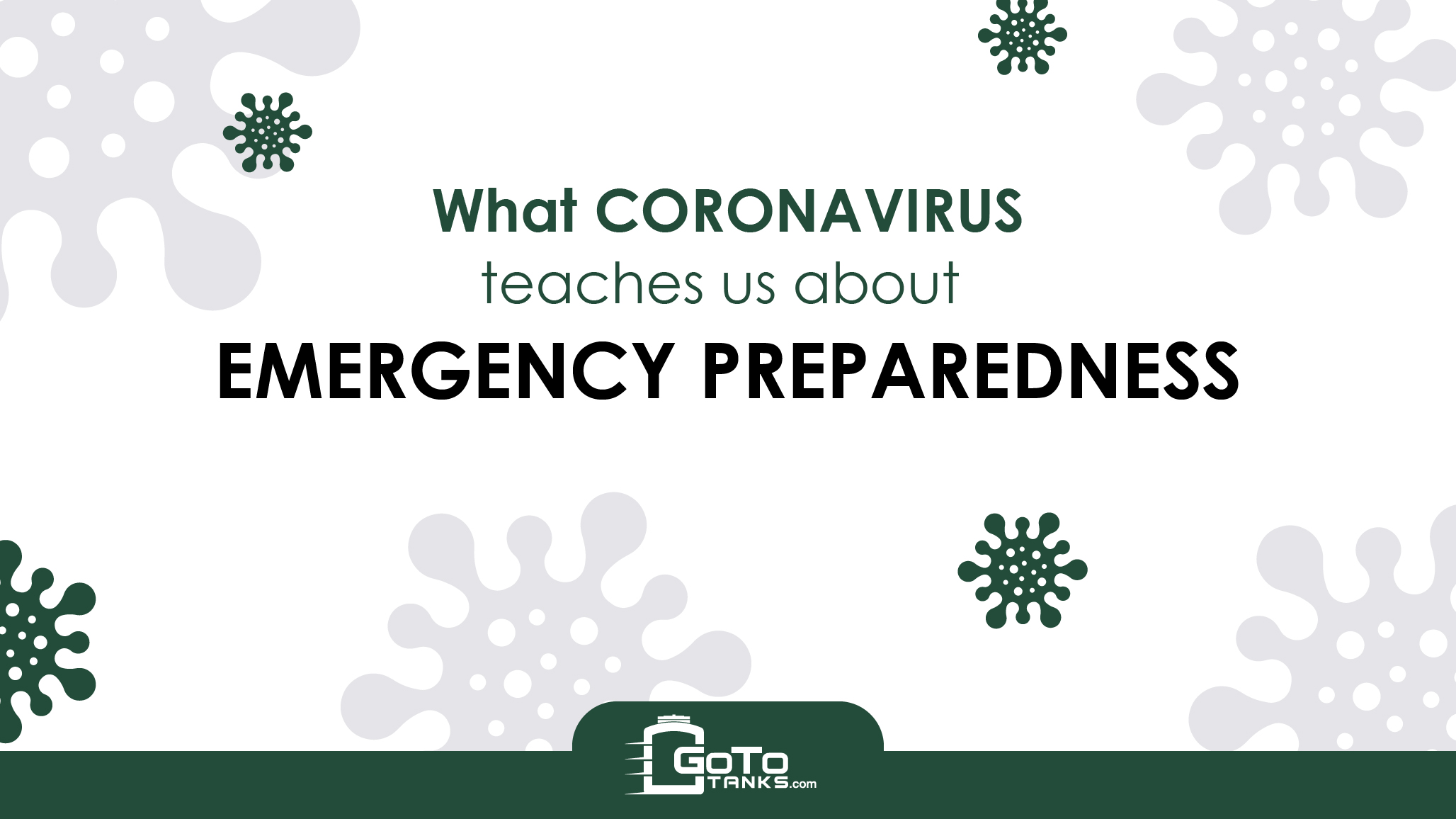
The global pandemic has been a wakeup call for millions of Americans. The speed at which the crisis shut down our society was alarming, and quickly revealed how unprepared we are for large-scale emergencies.
Looking back on the 2020 pandemic, now is the time to assess what worked, what didn’t, and what we can do better next time. What basic resources did we overlook? What steps can we take to protect our families and stay self-sufficient during future crises? The answer – Be ready before it happens with dependable plastic tanks and storage products that help you stay prepared when it matters most.
The coronavirus pandemic proved that a simple virus can quickly create a global standstill. With climate change accelerating, the risk of future global crises remains high. COVID-19 wasn’t without warning; past outbreaks like SARS (2003), MERS (2012), and pandemics such as the Spanish flu (1918), HIV (1980s), Swine flu (2009), Ebola (2014), and Zika (2015) all signaled what was possible. Yet, those warnings largely went unheeded by world governments.
Whether it be a hurricane, tornado, earthquake, flood, or another pandemic, being prepared is your best solution. Being prepared means being able to act fast the moment disaster strikes. Most emergencies come with little to no warning, so being ready to react is critical.

It’s always a good idea to have a reserve supplies of food and water for emergencies. By investing in fresh water storage in your bunker or shelter, you’ll have a guarantee for safe drinking water which can be critical for survival.
Water tanks, bladder tanks, and rain harvesters can supply plenty of water for long-term use. Vertical tanks, like the 22 gallon Plastic Vertical Water Storage Tank, are made from food-grade plastic come in a variety of sizes, capable of holding anywhere from 20 to 500 gallons of water. Expandable bladders, such as the 50 Gallon Bladder Tank, can scale even larger, with some able to hold up to 30,000 gallons. Bladders are great for temporary emergency shelters such as field hospitals and medical tents, because they can be emptied quickly, folded up, and transported. They can also be suspended in an overhead rack, or stowed away in a crawl space. Utility tanks, like 80 Gallon Portable Utility Tank, can provide a more transportable water storage solution, while doorway and pick up truck tanks are specifically designed to fit through doorways or in the bed of a pick up truck, respectively. All of these storage tanks come in a variety of shapes, sizes, and colors to fit pretty much any water storage need—be it long-term or short-term.
Our tanks are capable of holding supplies of critical foods, like cooking oil, flour, sugar, syrups, and fresh crops. Food and water are your most essential resources in an ongoing emergency, so the best way to prepare is to have those resources on hand before the emergency hits.
Health officials generally recommend having three to five days worth of medication—prescription or otherwise—available for an emergency. It’s imperative that individuals prepare their own supplies, especially those with specific health concerns.
First aid kits should include gloves, bandages, disinfectants, and non-prescription drugs like ibuprofen, aspirin, and acetaminophen for pain or fever. Anti-diarrhea, antacids, and laxatives may also come in handy. Visually impaired individuals should have at least two pairs of glasses, and diabetic patients should have enough insulin to last at least a week. These basic supplies can go a long way in sustaining care or providing temporary relief.
Beyond medicine, it’s a good idea to have a supply of tools and equipment that may prove useful in an emergency. FEMA recommends having the following items on hand for any emergency:
People are stronger in numbers. Neighbors, local officials, and other residents in your area can pool resources, provide critical information, and offer much needed help to endure any emergency. Information is often difficult to obtain in an emergency, and families will often have to rely on their communities for help.
Radios, satellite phones, batteries, and mobile devices are all invaluable in an emergency, especially one where the electrical grid has been compromised. Without means of communicating or receiving information from the outside world, it’s important to lean on community.
Whether you need a short- or long-term supply of water, fuel, food, or some other vital resource, Go To Tanks has you covered. We provide a variety of plastic water tanks, bladders, caddies, troughs, totes, and other containers for virtually any situation. Our tanks are made from food-grade plastic, come in a variety of colors, and can be sized to any specification.
Whether you’re preparing for an emergency or just looking for a storage solution, call 1-877-468-2657 and we’ll help you find a tank that suits your needs.